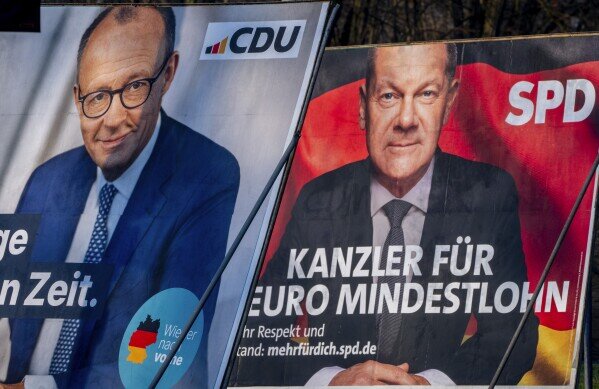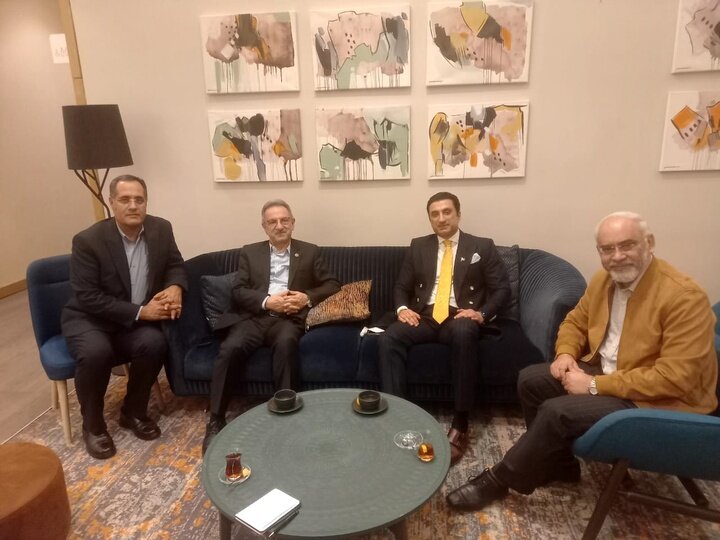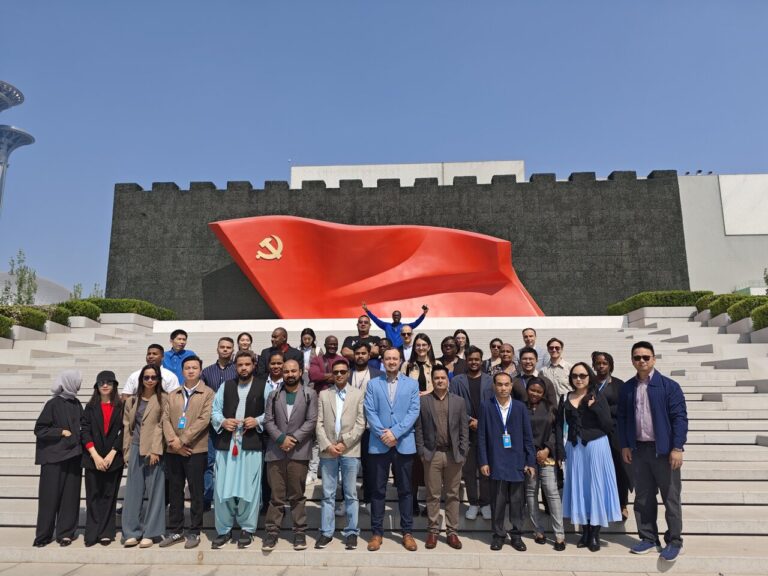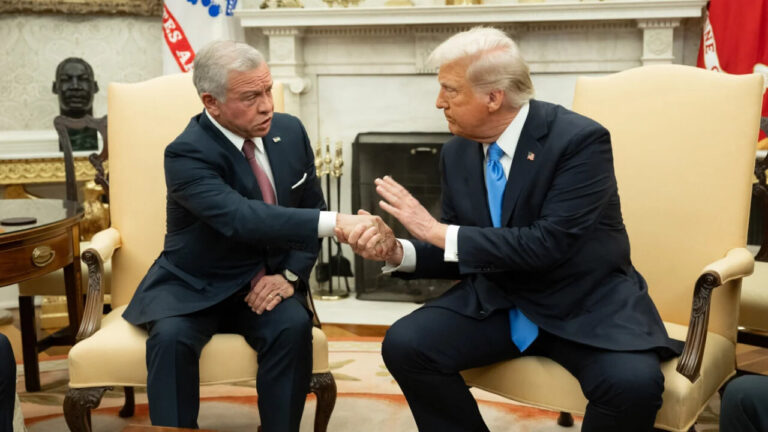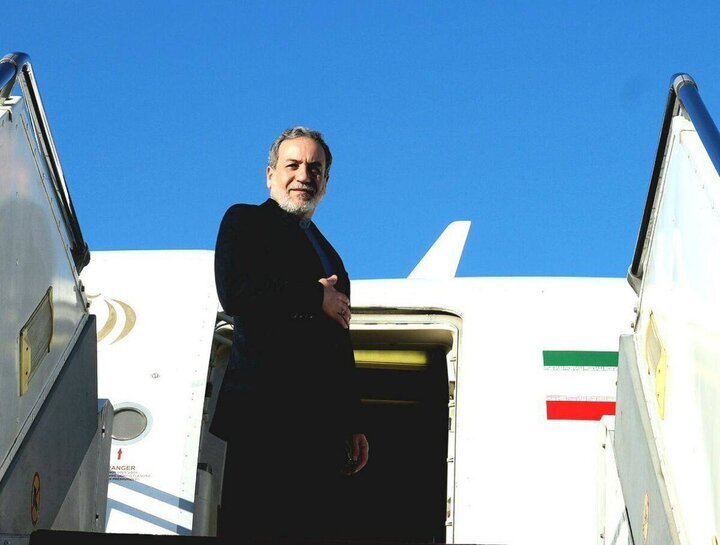Germany’s Central Hub: A Powerhouse of Connectivity and Innovation
Germany’s political landscape is currently experiencing significant upheaval, marking a stark departure from its traditionally stable governance. Following the collapse of Chancellor Olaf Scholz’s coalition government at the end of last year, the nation is preparing for its first early elections in two decades. The political turmoil has intensified as Friedrich Merz, the leader of the center-right Christian Democratic Union (CDU), has proposed stringent immigration reforms, leveraging support from the far-right Alternative for Germany (AfD). This unprecedented collaboration has transformed the upcoming election on February 23 into one of the most contentious and polarizing campaigns in recent history.
The stakes for these elections are notably high, as debates surrounding immigration—which have been a consistent theme in German politics for the last decade—are reaching a fever pitch. Additionally, Germany’s economy is grappling with challenges, being one of the slowest-growing in the European Union, compounded by threats emerging from China and potential tariffs from the United States. The political center in Germany is currently facing a crisis of legitimacy, raising concerns that the CDU might increasingly align with the AfD, which is currently polling in a strong second place.
However, the country’s political and economic challenges need not lead to a future dominated by far-right ideologies. Historically, German politics have been characterized by compromise and consensus, primarily among mainstream parties such as the CDU, its sister party the Christian Social Union (CSU), and Scholz’s center-left Social Democratic Party (SPD). Recent polling indicates that these parties may collectively hold enough seats to form another “grand coalition.”
- This coalition model has faced criticism in the past for its lack of ambition and reformative capacity.
- Despite this, it could offer a stable government capable of revitalizing the economy and enhancing Germany’s international standing.
Polling data shows that a coalition between the CDU/CSU and the SPD is the preferred outcome for many German voters. This indicates ongoing support for centrist policies that prioritize defense, infrastructure spending, and innovation reforms. A centrist coalition might also strengthen EU defenses against challenges posed by Chinese manufacturing and could foster improved relations with the Trump administration.
Political Shifts and Economic Challenges
The chaotic dissolution of Scholz’s three-party coalition with the progressive Greens and the business-oriented Free Democratic Party (FDP) has left many Germans disillusioned. What started as a promising alliance devolved into a series of conflicts, revealing deep ideological rifts that hindered effective governance. The FDP’s withdrawal from the coalition shortly after the U.S. elections plunged Germany into uncertainty.
Friedrich Merz, a former CDU ally of Angela Merkel, now leads the polls with approximately 30% support, followed closely by the AfD at 21% and the SPD at 16%. However, Merz’s decision to accept AfD support for immigration policy has complicated his campaign. While a majority of Germans favor a tougher immigration stance, most prefer to maintain a distance from the AfD and do not wish for the far-right party to gain governmental influence.
The Economic Landscape
Germany, while still holding the title of Europe’s largest economy, is facing a prolonged downturn. The nation’s GDP has stagnated since 2019, impacted by the COVID-19 pandemic, rising competition from China, and the energy crisis following Russia’s invasion of Ukraine. Repairing the damage from these economic shocks will be a complex challenge, particularly as the international economic landscape shifts.
Historically, Germany has thrived on a global market that favored its exports, leading to substantial trade surpluses. However, changing dynamics have seen other nations eroding this advantage. Recent aggressive export strategies from China have resulted in overcapacities that threaten the core of Germany’s industrial sectors, particularly automotive and high-tech industries.
- Germany’s exports to China shrank by 6.4% last year.
- Potential tariffs from the Trump administration could further complicate Germany’s economic recovery.
Merz’s Vision for the Future
In light of these challenges, Merz is attempting to shift the CDU away from its previous China-friendly trade approach. He has warned major companies about the lack of bailouts for losses in the Chinese market and is advocating for coordinated European trade strategies with China.
Moreover, Merz is committed to deepening the integration of the EU’s single market, focusing on defense, energy, and finance. He aims to revive the Weimar Triangle—an important political cooperation framework between Germany, France, and Poland—and acknowledges the necessity of a strong partnership with the United States, especially as Washington remains a critical security ally.
Merz also proposes that Germany transition from a passive middle power to a more proactive leader in international affairs. He has called for a comprehensive overhaul of Germany’s foreign policy, including the formation of a national security council to address emerging threats from nations like China, Iran, North Korea, and Russia.
Challenges Ahead
However, Merz faces significant hurdles in securing a stable government and implementing urgent reforms. The fragmented political landscape, marked by the rise of both far-right and far-left parties, complicates coalition-building efforts. While many Germans still favor traditional two-party arrangements, the historical precedent of instability during the Weimar Republic looms large.
Without a stable centrist government committed to reform, Germany risks further economic decline and an increasing influence of far-right politics. To avoid these pitfalls, Merz and centrist leaders must embrace a compromise-driven approach, reminiscent of Merkel’s tenure. This commitment to collaboration may ultimately define Germany’s path forward and its role on the global stage.
In conclusion, the upcoming elections present a critical juncture for Germany. With the far-right on the rise and economic challenges mounting, the need for a stable, reform-oriented government has never been more pressing. Merz’s ability to navigate these turbulent waters will determine not only his political legacy but also the future of Germany itself.
